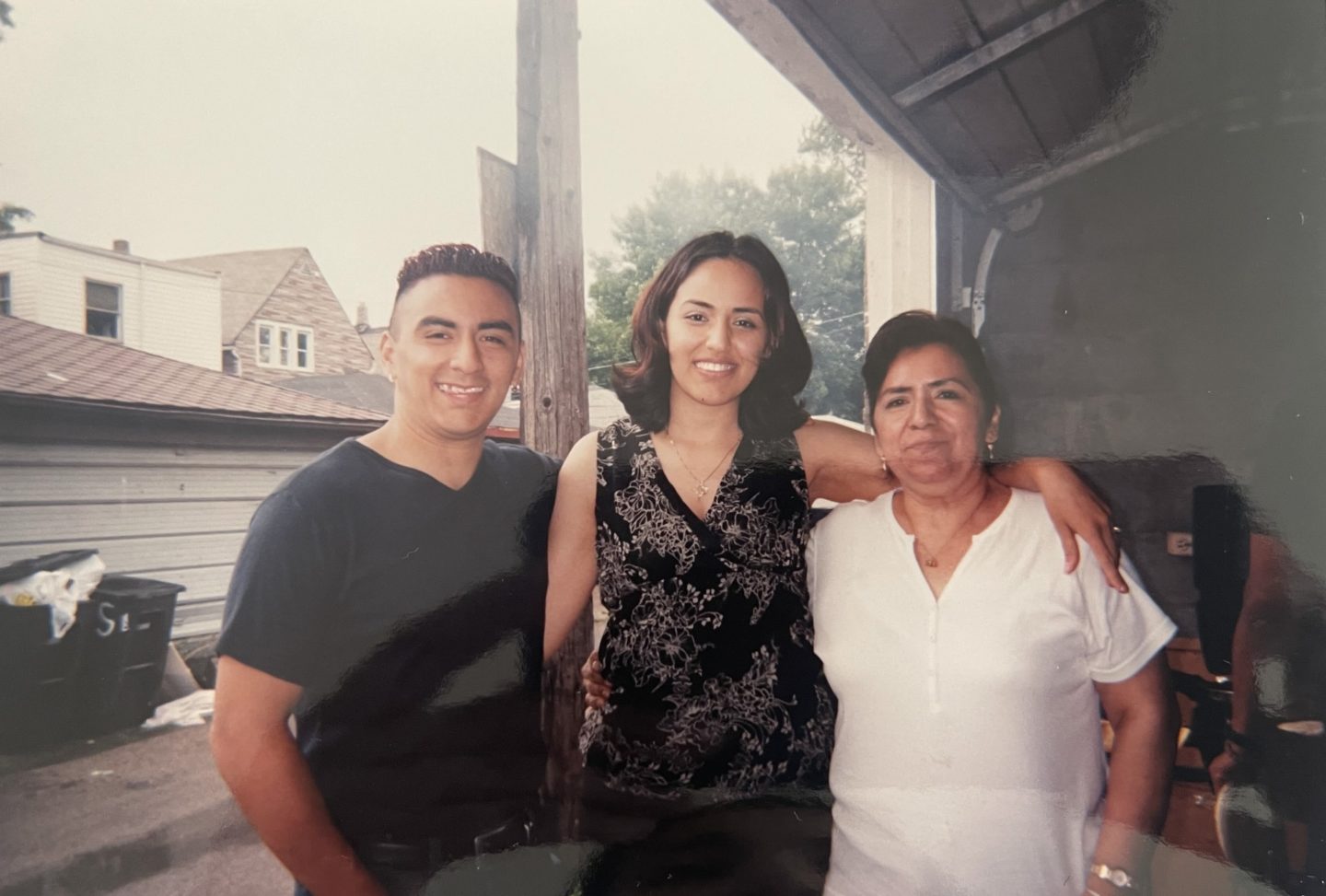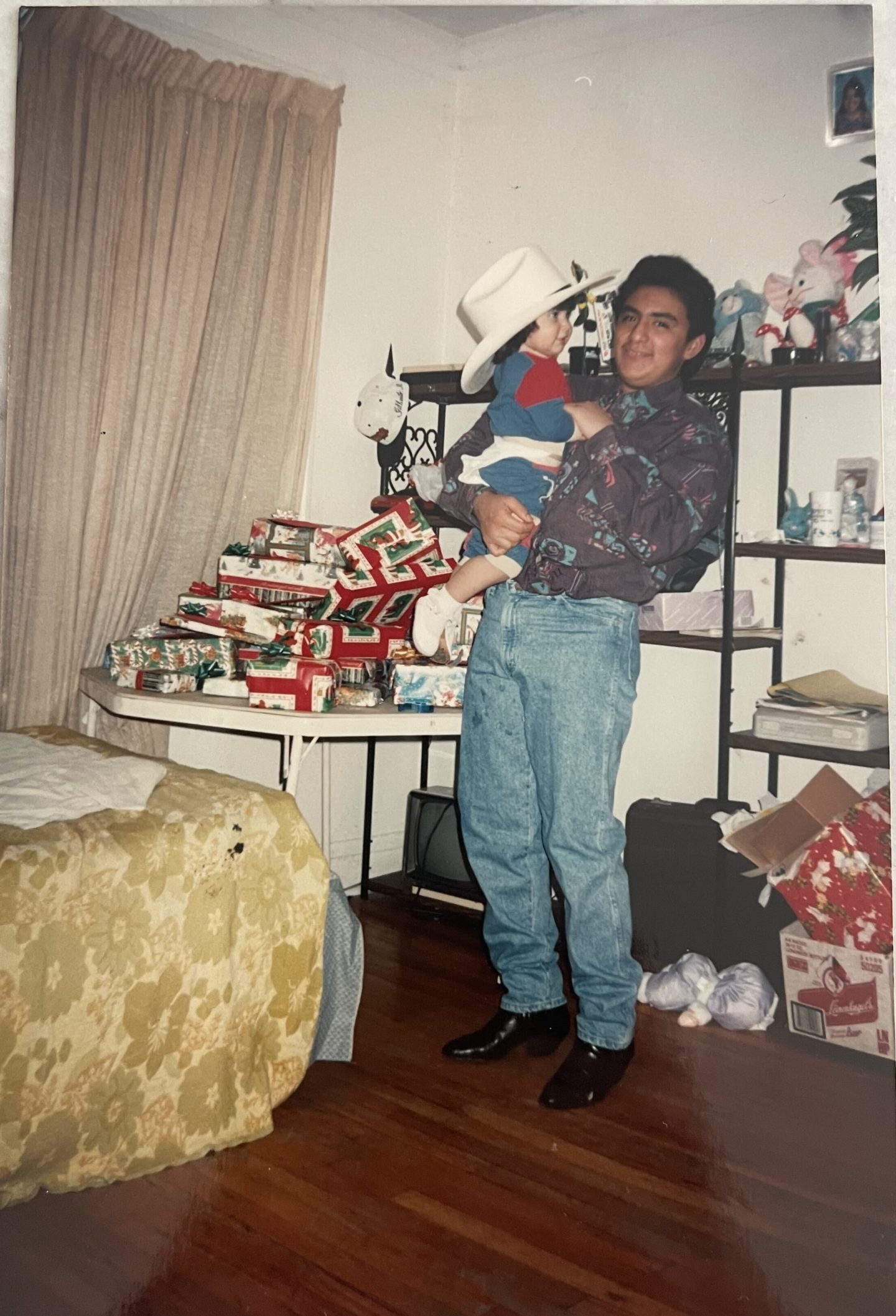(The author Vanessa Rico at age 11, fishing in Devil’s Lake in Wisconsin.)
It’s been 40 years since my mom last stepped foot in her native Mexico.
In July of 1982, she and my dad came to the United States to provide their children better educational opportunities. Once here, they experienced hunger like they had never known before. My siblings were young children, ages 2 and 5 when they were displaced.
My parents worked long hours like many other immigrants — my mother as a textile worker at a factory and my father in the field. They faced obstacles at every turn, including language barriers, financial hardship and racism.
Could you imagine treading through a harsh Chicago winter with your two older children by your side, and your infant tied to your hip in a colorful rebozo (a traditional Mexican shawl used as a baby carrier), weighing the options between buying a pack of diapers or feeding your family? That was our reality.
Despite the hardships, my mom’s inspiring words follow me everywhere: “You never deny anyone a bowl of frijoles even if that’s all you have, mija.”
As we celebrate Hispanic Heritage Month, which begins September 15, my story may resonate with many in Chicago and beyond. My mom made sure we celebrated our values, customs and traditions every day.
A lot of us grew up with the saying, “Ni de aqui, ni de alla,” which translates to “neither from here nor from there” in English.
In actuality, though, we are 100% de aqui and 100% de alla. Latine culture is American culture.
We celebrate life in the United States and feel connected to it here. Many of us were born here or grew up here. Some of us were born in our respective Latine countries but when it comes down to it — this is home now and always will be.
(For those who aren’t familiar with the word “Latine,” it’s a gender-neutral form of the word Latino. I like it because the pronunciation feels more genuine to the Spanish language than Latinx.)
As a first-generation college student, I was showing up for my ancestors. I carried their struggle on my shoulders and represented them proudly as I received my diploma. Graduating was not a solo moment but a collective opportunity to show up and show out — for my family, my neighbors, the Latine community and the generations who faced many adversities before me.
Every day, we show up to champion hope to those around us by speaking up against the injustices Latine people experience. We are doctors, teachers, poets, musicians, elected officials and philanthropists. We are educating the next generation, providing resources and inspiring them to be proud of their heritage.
We’ve maintained our love for our aromatic food, llena de sazon and spicy to the tongue; our vibrant dance-inducing music full of twists and turns; and our traditions and warm hospitality. In so many ways, Latine culture enriches and uplifts the complex tapestry of American life.
Yet despite our myriad contributions, we know that Latine households are disproportionately affected by food insecurity, here in Chicago and in cities across the country.
Latine people are 2.5 times more likely to experience food insecurity than white people, according to Feeding America.
Why? Racism, inequitable educational opportunities and cultural barriers — many of the same barriers that my parents faced as immigrants.
I want better for my two children, Adriel, 9 months, and Elissa, 8 years old. And I’m proud of the work that we do at Nourishing Hope to serve all of our neighbors with dignity and respect.
As someone who grew up going to food pantries, I’ve often been moved by the mindfulness and representation of culture through our food programs. My mother was able to receive services and she felt comfortable and connected to the food she received through Nourishing Hope’s online market order. She received tortillas and pinto beans, arroz and meat she could use for traditional meals.
Our social services have helped many of our Latine neighbors give back to their families, whether they’re here in the U.S. or in their native country. I have seen the sparkle in their eyes when the crushing burden of bills is lifted. They can shift their focus to providing for their children’s future. They can be everyday heroes nourishing their families and community.
This Hispanic Heritage Month, my family and I will dive into our family history through storytelling. We will savor the creamy texture and spicy flavor of molé, a traditional Mexican meal. We will remember the sacrifices of our parents and grandparents. We will celebrate the hopes and dreams of our children.
Levantaremos nuestras banderas en alto y daremos el Grito de Dolores.
My home will always be 100% de aqui and 100% de alla.
(Vanessa Rico is an individual giving associate on Nourishing Hope’s development team, proud mother of two young children and 100% Latine.)


